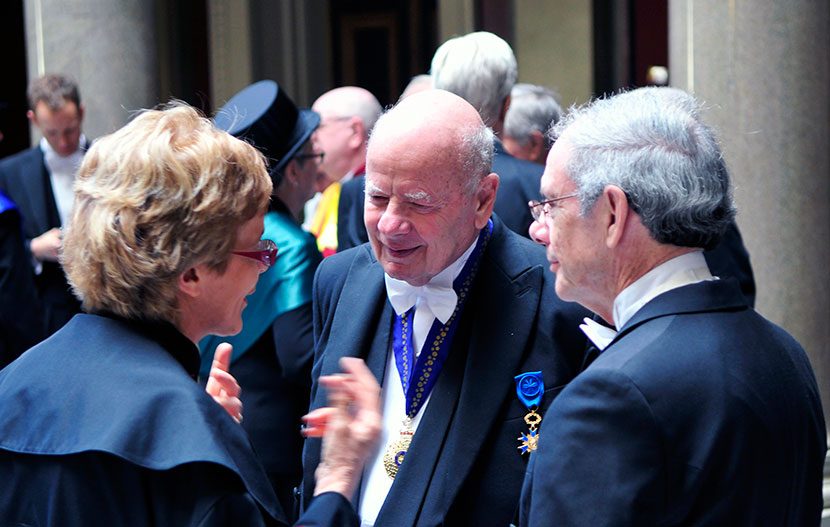
Professor John Chalmers honoured by Sweden’s Lund University
The prestigious Lund University Faculty of Medicine in Sweden has conferred an honorary doctorate to The George Institute’s Professor John Chalmers AC.
An internationally leading researcher in cardiovascular medicine, Professor Chalmers has had a strong relationship with Lund University. Over the past few years he has hosted five doctoral students here in Australia from the University’s Department of General Practice – these students published multiple papers from their work with him, with one returning to complete a post-doctoral fellowship.
Professor Chalmers’ storied career includes multiple eminent positions such as President or Chairman of the Australian Society of Medical Research, The Royal Australasian College of Physicians, the National Health and Medical Research Council of Australia, the WHO Expert Committee on Hypertension, the International Society of Hypertension and the Scientific Advisory Board of the World Heart Federation. In 1991 he was appointed a Companion in the Order of Australia (AC) and then in 2010 an Officer in the National Order of Merit of France.
Patrik Midlöv, professor of general medicine at Lund University and Lars Hjalmar Lindholm chair of the board at the Centre for Primary Healthcare Research, said: "John Chalmers’s ground-breaking research into the brain’s role in the development of high blood pressure led to his 1987 appointment to the Australian Academy of Science. High blood pressure is a very common risk factor for stroke which affects the majority of people over the age of 65. Reducing blood pressure in various ways has brought great therapeutic benefits through a reduction in cases of stroke.”
Receiving the doctorate at a special ceremony in Lund Cathedral in Sweden, Professor Chalmers said: “I was of course deeply honoured to be nominated and then tickled pink when I heard that I was among those chosen for the award of the Title of ‘Doctor of Medicine, Honoris Causa’ by such a well respected University with deep traditions that hark back a few centuries.”


